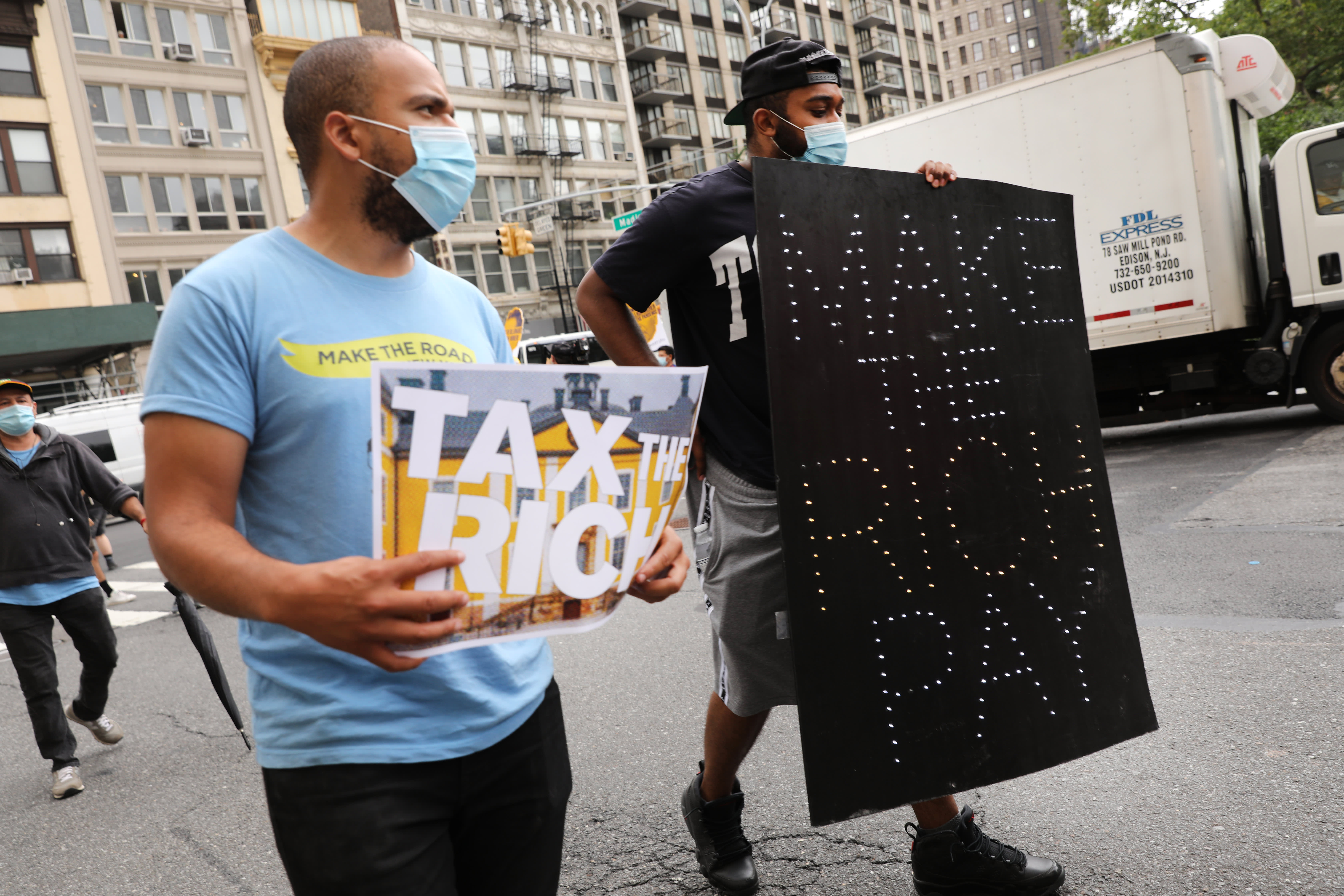Lawmakers in nine states are proposing higher taxes on the wealthy to help fill growing budget holes from the coronavirus pandemic, and the list is likely to grow, according to a legislative group.
After New Jersey passed its “millionaire’s tax” — raising the income tax rate for those making $1 million or more — legislators in New York, California, Massachusetts, Maryland and other states renewed their efforts to hike taxes on high earners.
While some of the efforts may fail, states with multibillion-dollar revenue shortfalls are increasingly looking to high earners to pay for more of the costs of the pandemic and make up for lost revenue.
Democratic lawmakers argue that the wealthy — who have largely escaped the economic hardship of the pandemic — should pay more of the costs and help those who have suffered most. Republicans and some Democratic governors say tax hikes at the state level will only cause the wealthy to move to lower-tax states like Florida or Texas.
Along with New York, lawmakers in California, Illinois, Massachusetts, Maryland, Wisconsin, Hawaii, Oklahoma, Vermont have proposed various forms of tax increases on high earners, according to the National Conference of State Legislatures. Those states account for more than a third of the U.S. population, and nearly half of the nation’s millionaires, according to population data and wealth surveys.
Jackson Brainerd, senior policy specialist with the National Conference of State Legislatures, said he expects the tax hike movement will grow at the state level.
“As we move further into fiscal year 2021, I expect that more states will start looking to raise taxes to close budget shortfalls, especially if additional federal aid does not materialize,” he said.
In the wake of the last the financial crisis, eight states increased taxes on high earners between 2010 and 2012, he said. While some of those increases were temporary, others — California’s millionaire tax — continue to be extended.
The two biggest battlegrounds over the taxing the rich are Illinois and New York. In Illinois, billionaire governor J.B. Pritzker has spent more than $50 million of his own money to support a ballot measure in November that would allow the state to impose a progressive income tax, which would tax higher earners at a higher rate, to replace the state’s current flat income tax rate. Billionaire hedge funder Ken Griffin has pledged $20 million of his own money to help oppose the change, saying the state’s problems should be fixed with spending cuts and better management.
In New York, legislators are proposing higher income taxes and a “billionaire’s tax” that would annually tax unrealized capital gains on those worth $1 billion or more. Many Democratic lawmakers are citing New Jersey’s new rate — which at 10.75% is now higher than New York’s 8.82% — as a reason to raise taxes.
Gov. Andrew Cuomo opposes any tax hikes on the wealthy, saying it would only cause them to flee to lower tax states. The top 1% of earners pay 36% of New York’s income taxes and 46% of New York City’s income taxes, according to E.J. McMahon, senior fellow at the Empire Center for Public Policy.
New York’s budget director, Robert Mujica, warned legislators last week that most New York millionaires and billionaires live and pay taxes in New York City, where the combined state and city tax rate is over 12.6% — higher than New Jersey’s new rate.
“There is much discussion about the state and nation’s economic condition and the options available to New York State,” Mujica said in a statement. “Let’s make sure the discussions are informed.”
People participate in a “March on Billionaires” event on July 17, 2020 in New York City.
Spencer Platt | Getty Images
